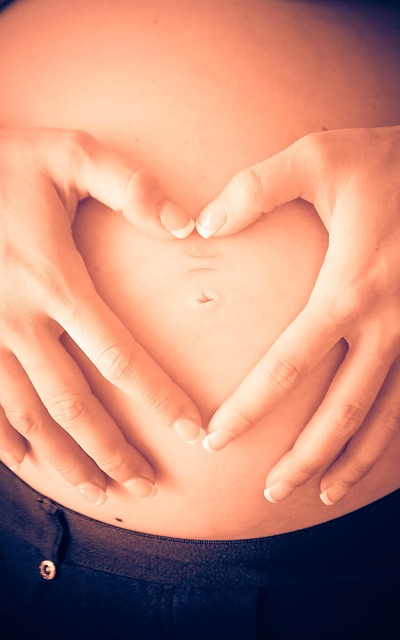Embryo transfer using donor eggs offers a promising alternative for pregnancy after ovarian cystectomy, addressing potential fertility challenges. This assisted reproductive technology involves IVF, creating embryos from donor oocytes for uterine transfer. Evaluating medical history and eligibility is crucial, considering factors like age, health, and previous pregnancies. Physical and emotional preparation are essential, as is close post-transfer monitoring to optimize pregnancy outcomes and address symptoms effectively.
“Considering pregnancy options after ovarian cystectomy? Embryo transfer with donor eggs can be a viable path. This comprehensive guide explores the entire process, from understanding the procedure and its benefits to preparing for the transfer physically and emotionally. We’ll also cover crucial post-transfer care and monitoring success rates. By delving into these aspects, you’ll gain valuable insights into navigating this significant step towards building your family.”
Understanding Embryo Transfer and Donor Eggs
Embryo transfer is a crucial step in assisted reproductive technologies, offering a promising path to pregnancy for many individuals and couples. When facing conditions like ovarian cysts that require cystectomy, exploring alternative fertility solutions becomes essential. In such cases, donor eggs provide a viable option, enabling embryo transfer as part of an IVF (in-vitro fertilization) process. This procedure involves the manipulation and transfer of embryos created from a donor’s oocytes (eggs) into a recipient’s uterus, aiming to achieve successful implantation and pregnancy.
Understanding this process is vital for those considering it after ovarian cystectomy. Donor eggs offer a way to bypass potential fertility challenges associated with cysts and related surgeries. By utilizing eggs from a donor, the focus shifts to creating healthy embryos through fertilization and subsequent cultivation in a lab setting. This innovative approach expands pregnancy options, ensuring that individuals who may have limited or compromised ovarian function due to cystectomy still have the chance to experience pregnancy and build families.
Evaluating Your Medical History and Eligibility
Evaluating your medical history and eligibility is a crucial step in preparing for embryo transfer with donor eggs. This process involves a thorough review of your past health, including any surgeries, medical conditions, and previous treatments. For instance, women who have undergone ovarian cystectomy may face unique challenges when exploring pregnancy options. It’s essential to disclose this information to your healthcare provider, as it can impact fertility and the success rates of embryo transfer procedures.
Your eligibility for embryo transfer is determined by various factors, including age, overall health, and previous reproductive history. During this evaluation, your doctor will assess if donor eggs are the best suited option for you. They’ll consider your ability to carry a pregnancy, any underlying health issues that could complicate the process, and discuss potential risks and benefits of embryo transfer using donor eggs. This open dialogue ensures informed decision-making as you navigate your journey towards building a family.
Preparing Physically and Emotionally
Preparing for embryo transfer with donor eggs involves both physical and emotional readiness. Physically, it’s crucial to ensure your body is in optimal condition, especially after procedures like ovarian cystectomy. This might involve adjusting to new hormonal regimes or managing any lingering side effects from surgery. Proper nutrition, regular exercise, and adequate rest are key components to support both your physical health and fertility journey.
Emotionally, navigating this process can be a rollercoaster. It’s important to acknowledge and process feelings of anxiety, excitement, or even sadness. Open communication with your healthcare team and supportive partners or friends can make a significant difference. Remember, exploring pregnancy options after ovarian cystectomy, including embryo transfer with donor eggs, is a personal decision that deserves careful consideration both physically and emotionally.
Post-Transfer Care and Monitoring Success
After the embryo transfer, proper post-transfer care becomes crucial for monitoring success and ensuring optimal outcomes. Patients are typically advised to rest and maintain a healthy lifestyle, including a balanced diet and regular exercise, as this supports the developing embryo. It’s essential to follow the doctor’s instructions regarding any restrictions or guidelines specific to the procedure.
Regular check-ups with healthcare providers are vital to track progress and assess potential complications. Through these visits, medical professionals can monitor hormone levels, detect any signs of pregnancy, and provide necessary adjustments to care plans. Additionally, understanding the symptoms of a successful pregnancy and knowing when to seek medical attention is essential for both the mother and the embryo transfer team.
Embryo transfer with donor eggs offers a promising path to parenthood for many individuals. By understanding the process, evaluating your eligibility, preparing both physically and emotionally, and ensuring proper post-transfer care, you can enhance your chances of achieving a successful pregnancy. This journey may be complex, but with the right preparation and support, it can lead to the wonderful experience of welcoming a new life, even after procedures like ovarian cystectomy, opening up diverse pregnancy options.
